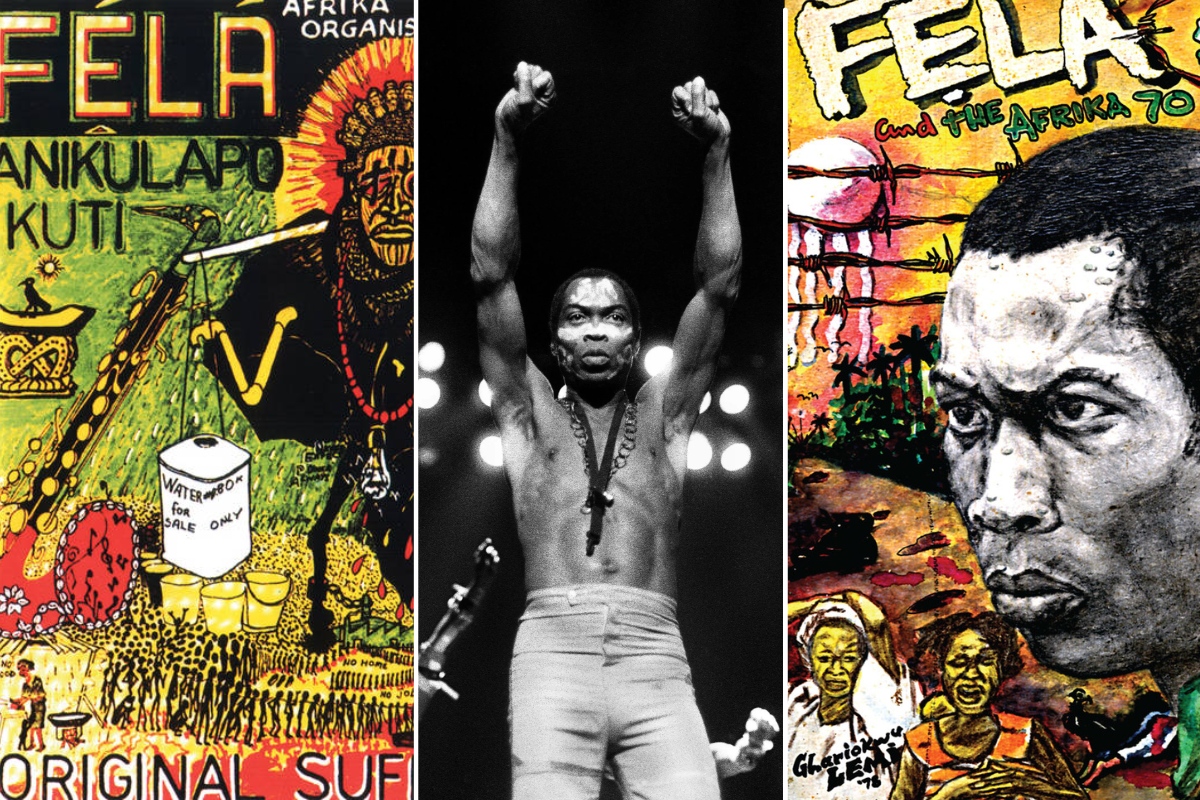Fela Anikulapo-Kuti (1938-1997) was a Nigerian musician whose music spawned countless imitators and admirers across a wide network of musical genres and subgenres.
His work introduced and popularised a whole new palette of African-inspired rhythms and textures to popular western music. Talking Heads, Beyoncé, Erykah Badu, and The Roots all count Kuti as a central influence on their work.
After visiting the US in 1969 and coming into contact with the ideas of Malcolm X and the Black Panthers, Kuti’s music became imbued with a radical anti-establishment character that would define his work in pioneering the genre of Afrobeat.
Upon his return to Nigeria, Kuti began singing about the corruption and oppression that permeated the ruling military junta of General Obasanjo. This criticism expanded to the western imperialists that propped up the Nigerian state, including foreign multinationals like Shell, Mobil, and ITT.
Kuti’s 1976 track Zombie took aim at the mindless thuggery of the state and its enforcers. It is an anthem against dogmatic “obeying before complaining” and the corrosive effect the imperialist-backed junta was having on Nigerian society.
All this is set to a raucous instrumental of roaring horns, and a hypnotically driving drum part that ploughs ceaselessly on through all twelve minutes.
Kuti’s outspoken nature and popular live shows drew the attention of thousands of fans, and just as many enemies.
His own nightclub, The Shrine, came under constant police raids. But each new attack on Kuti only strengthened his popularity amongst the people and, in turn, his own boldness.
This all came to a head in 1977, when Kuti’s home was raided by soldiers from the nearby Abalti Barracks. Inhabitants were raped and maimed, and his studio and mastertapes turned to ashes. His elderly mother, Funmilayo Ransome-Kuti, a dedicated class fighter in her own right, was severely beaten and later died of her injuries.
This episode of brutal suppression was dismissed by the courts out of hand – but pushed Kuti even further left.
The 1980s saw Kuti at his most radical. Overtake Don Overtake Overtake (1989) is an absolute masterpiece, and one of Kuti’s best. In this 30-minute tour de force, he criticises the military take-overs in Africa that all suffered from the same shortcoming: not breaking from the capitalist system.
He even exposes the imperialist collaboration and treachery involved in the assassination of Thomas Sankara, the young revolutionary military leader of Burkina Faso – and close friend of Kuti’s.
Like the politics of Sankara, the music of Fela Kuti has left an indelible impression on the consciousness of the African youth, who today continue the struggle against imperialism, corruption, and the capitalist system.






